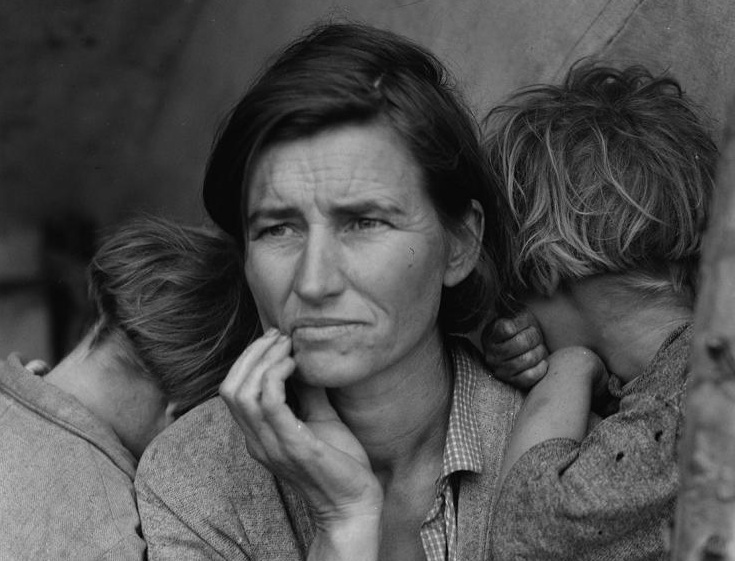Question: What about the Christian right and its support for Trump’s exclusionary rhetoric?
那么基督教右翼及其对特朗普排外言论的支持呢?
Answer: Religion can be a very powerful source of hope, and some Christian evangelicals have fought back against that sort of rhetoric. Remember when Obama called on the evangelicals for support [during his 2008 presidential campaign]? He got pushback for that, but it was the right thing to do. You don’t want to close out one segment of the public. You do want to say that there is no place for hateful rhetoric in America.
宗教可以是希望的一个非常强大的来源,一些基督教福音派已经反击了这种花言巧语。还记得奥巴马(在2008年总统竞选期间)呼吁福音派教徒支持他吗? 他为此受到了抵制,但这是正确的做法。你不会想要放弃一部分公众。你确实想说,美国不存在仇恨言论。
How is hope an antidote to fear?
希望如何是恐惧的解药?
Usually, hope is considered the opposite of fear, and in a way it is. But what the philosophical tradition points out is that the two are very similar: Both require that the outcome, which is highly uncertain, is going to be something meaningful and important to you.
通常,希望被认为是恐惧的对立面,在某种程度上确实如此。但哲学传统指出两者非常相似:两者都要求高度不确定的结果要有意义且重要。
The Stoics (followers of a Hellenistic philosophy founded in the third century B.C.) taught learning not to care about uncertain things, about pulling all your cares inside yourself. If you were a complete stoic—caring only for your own reason and will—then you would not have fear or hope. That was a natural response in the world at the time because so much was rapidly turning into tyranny. But it was still a bad response. If you think, as I do, that it’s important to love other people or your country or things outside your control, then you are going to have both fear and hope.
斯多葛学派(公元前3世纪创立的一种希腊哲学的追随者)教导人们不要在意不确定的事情,内心不要装满忧虑。如果你是一个彻底的禁欲主义者——只关心你自己的原因和意愿——那么你不会感到恐惧,也不会有希望。这是当时世界的一种自然反应,因为太多的东西正在迅速变成暴政。但这种回应仍很糟糕。如果你像我一样,认为爱别人、爱自己的国家、爱无法控制的事情很重要,那么就会既感到恐惧又有希望。

Cicero was a Stoic who loved the Roman Republic—he fought to the death for it. At one point, he was mourning the death of his daughter and of the republic. His friends told him he should stop and be a proper Stoic, and he said, “No, these are important things, and I should grieve.” That’s how I think we should follow his example—hopefully without getting murdered by political assassins! He stuck his neck out, quite literally, for the assassins’ stroke.
西塞罗是一个热爱罗马共和国的斯多葛主义者——他为之战斗至死。曾经有一度,他在哀悼女儿的死亡、共和国的衰亡。他的朋友告诉他应该停下来,做一个真正的禁欲主义者,他说,“不,这些是重要的事情,我应该悲伤。”我想我们应该以他为榜样——希望不会被政治刺客谋杀!毫不夸张地说,为打击刺客,他敢说敢干。
Question: But hope is not a matter of probabilities, right?
问:但是希望不是概率的问题,对吧?
True. You could have a relative ill in the hospital, and the probability of a positive outcome is not very good, but you could still have hope. On the other side, the probabilities might be very good, but you could still have fear and have crippling anxiety.
的确。你可能在医院里有个亲戚病了,结果是阳性的可能性不是很大,但你还是有希望的。另一方面,可能性可能非常大,但是你仍然可能感到恐惧并非常焦虑。
But hope is also not just an emotion; it’s a syndrome linked to action. An important young female philosopher, Adrienne Martin, wrote a very good book on this: How We Hope: A Moral Psychology. She points out that hope is a way of looking at a situation with a disposition to act. If you are fearful, the action tendency is to run away and hide your head. But hope is: I will get in there and try to make this good outcome more likely.
但希望也不仅仅是一种情感;这是一种与行为有关的综合症。著名年轻女哲学家阿德里安娜·马丁关于这个写了一本很好的书:《我们如何产生希望:道德心理学》。她指出,希望是一种带着行动倾向看待情况的方式。如果你感到害怕,行为倾向将会是逃避并把头藏起来。但希望是:我将进入那里,并努力使这一良好的结果更有可能。
Hope energizes us. It gets us to run for office or support candidates. We won’t do that if we sit back in fear and despair. It is something you can produce in yourself with habits of mind and heart that make it more likely that you will have that hope rather than fear syndrome.
希望给我们能量。希望让我们竞选公职或支持候选人。如果我们在恐惧和绝望中退缩,我们就不会这样做。希望是一种思维和内心习惯产生的东西,这使你更有可能拥有更多希望,而不是恐惧综合症。
译文由可可原创,仅供学习交流使用,未经许可请勿转载。













